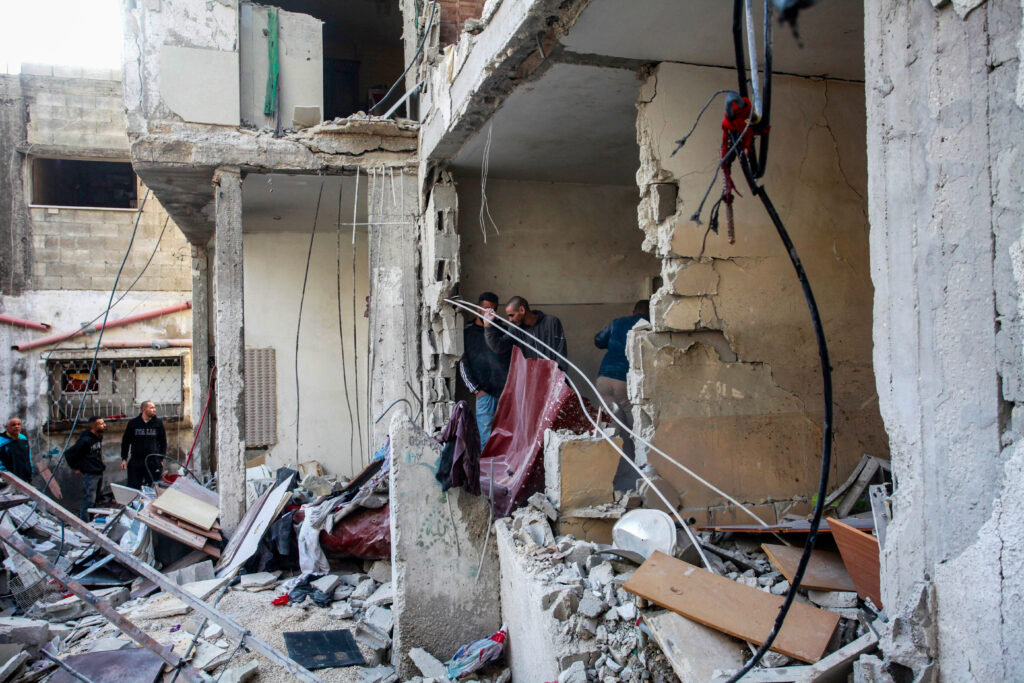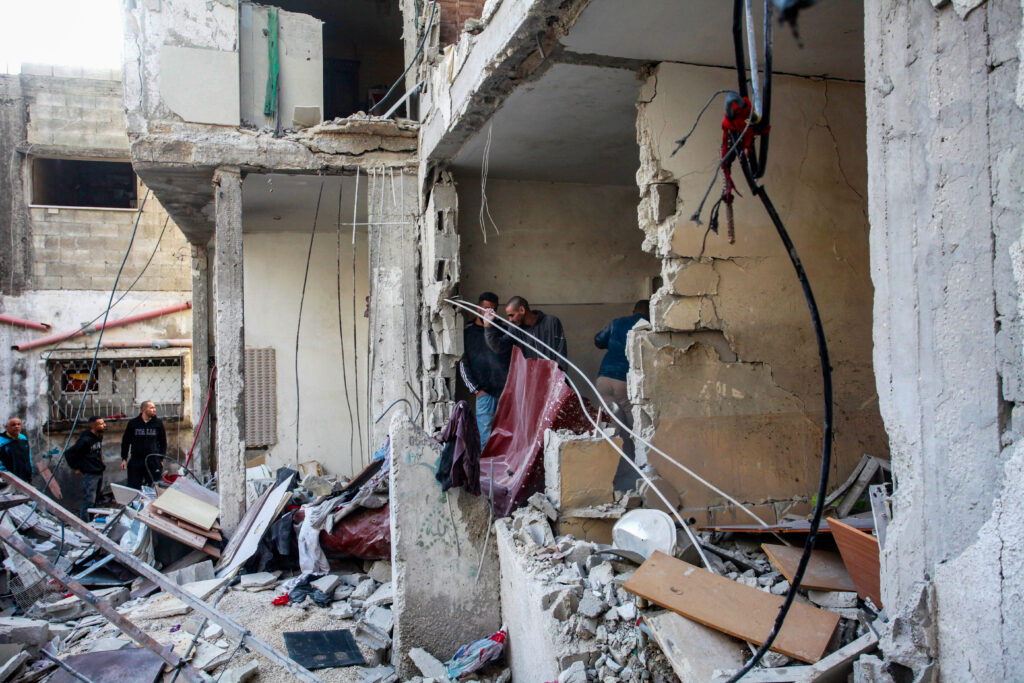
Israel-Lebanon Ceasefire, Hamas Seeks Gaza Truce, and Oct. 7 Failures
Ceasefire Brings Temporary Halt to Israel-Lebanon Conflict
A ceasefire between Israel and Hezbollah officially took effect at 4 a.m. on Wednesday, ending 14 months of hostilities. The agreement, brokered by the United States, was approved by Israel’s Security Cabinet, though with some dissent from National Security Minister Itamar Ben-Gvir.
Prime Minister Benjamin Netanyahu, speaking with U.S. President Joe Biden, expressed gratitude for the American role in securing the truce while emphasizing Israel’s continued freedom to enforce the agreement. The Israel Defense Forces (IDF) warned it would respond decisively to any breaches by Hezbollah.

The ceasefire stipulates that Israeli forces will gradually withdraw from Southern Lebanon over 60 days. Lebanese security forces are set to take control of these areas, ensuring Hezbollah’s retreat north of the Litani River. The agreement also limits Hezbollah’s military presence and reinforces U.N. Security Council Resolution 1701, which calls for the demilitarization of armed groups in Southern Lebanon.
Both sides retain the right to self-defense. However, monitoring mechanisms, managed by the U.S. and France, aim to ensure compliance with the ceasefire terms. Immediate threats, such as rocket fire or weapons smuggling, will elicit an immediate Israeli response, while other violations may involve international mediation.
Israeli officials, including President Isaac Herzog, have emphasized that the ceasefire must ensure long-term security for Israel’s northern residents. Former Defense Minister Yoav Gallant praised the IDF’s military achievements, noting the significant weakening of Hezbollah’s infrastructure.
Despite these assurances, concerns remain about the agreement’s enforcement, particularly regarding breaches north of the Litani River. Meanwhile, the IDF has cautioned residents of Southern Lebanon to delay returning to their homes until Israeli forces fully withdraw.
Hamas Backs Israel-Hezbollah Ceasefire, Seeks Similar Truce in Gaza
Hamas has expressed support for the ceasefire agreement between Israel and Hezbollah in Lebanon, which took effect early Wednesday. A Hamas representative stated that the group is open to a similar pause in hostilities and has communicated with mediators in Egypt, Qatar, and Turkey regarding a potential ceasefire and prisoner exchange deal. However, the group accused Israel of blocking such an agreement.
Despite welcoming the truce, Hamas noted its disappointment with Hezbollah, an Iranian-backed ally, for halting its operations while Gaza remains embroiled in conflict. Osama Hamdan, a senior Hamas official in Lebanon, acknowledged Hezbollah’s sacrifices and voiced support for any ceasefire declaration.
Channel 12 reported mixed messages from Hamas, with one source indicating that they would continue sporadic rocket attacks regardless of Hezbollah’s actions. Although Hamas’s rocket launches have significantly declined due to Israeli military operations, small-scale attacks persist.
Hezbollah, meanwhile, has launched approximately 16,000 rockets, missiles, and drones since joining the war on October 8, 2023, following Hamas’s mass assault on southern Israel a day earlier. The ongoing conflict has displaced nearly 70,000 residents of northern Israel. In “Operation Northern Arrows,” 124 Israeli civilians and soldiers have been killed, while over 1,200 lives were lost during the Hamas-led attack in southern Israel, with 101 hostages still held in Gaza.
Inquiry Assigns Blame for Oct. 7 Failures
An independent Civilian Committee of Inquiry into the Oct. 7, 2023, attacks has issued a report assigning responsibility to several current and former Israeli leaders, including Prime Minister Benjamin Netanyahu and past premiers Naftali Bennett and Yair Lapid. The panel criticized successive governments for underestimating threats and failing to adequately prepare for Hamas’s infiltration.
The committee’s 75-page report highlighted systemic failures across political and defense institutions, accusing officials of arrogance and complacency. It stated that the government continued to fund Hamas under a “money for quiet” policy while neglecting proactive measures to counter emerging threats.

Key findings implicated multiple defense agencies, including the IDF and police, for poor coordination. The report also faulted the IDF’s Southern Command and Military Intelligence Directorate for lapses in preparedness despite intelligence warning of potential attacks.
The committee, composed of former military officials and representatives of victims’ families, called for greater accountability. While the report is not legally binding, it has reignited calls for a formal state commission of inquiry, which Prime Minister Netanyahu has indicated he may establish after the war concludes.
As the debate continues, Netanyahu has acknowledged shared responsibility, stating that all levels of leadership must be examined to ensure similar failures are not repeated.
The post Israel-Lebanon Ceasefire, Hamas Seeks Gaza Truce, and Oct. 7 Failures appeared first on Israel365 News.
Israel in the News